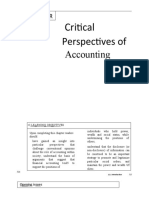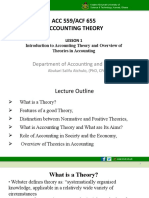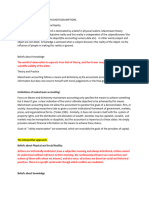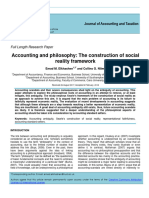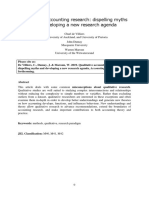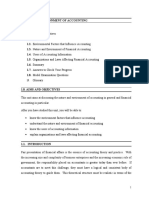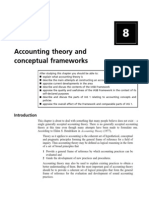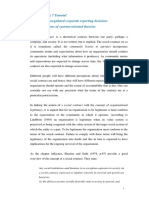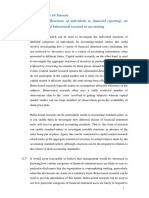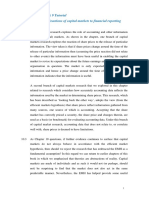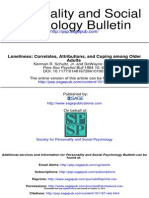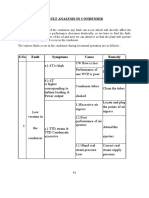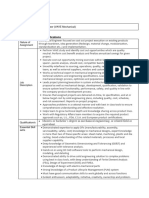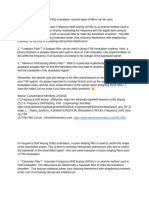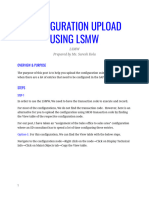ACT301 Week 11 Tutorial
Chapter 12—Critical perspectives of accounting
12.1 A critical perspective of accounting is a perspective that critically evaluates the
role of accounting in society. The label ‘critical perspective’ is a broad umbrella
term which has been used to describe research undertaken by many researchers
that sometimes applies different philosophical perspectives. As Hopper et al.
(1995, p.535) state ‘critical theory is an umbrella term for a wide variety of
theoretical approaches perhaps more united in what they oppose than what they
agree upon’.
Consistent with the above perspective of critical theory, Reiter (1995, p.53)
states:
In the critical world, there is no single established theory or approach, and
little consensus on how to proceed, aside from an absolute horror of
modernity and neo-classical economics.
Nevertheless, we can generalise by saying that a critical perspective does not
consider issues such as which accounting methods should be used in which
situations (an issue that often dominates the thoughts of many other accounting
researchers)—rather, it tends to dismiss most of accounting as being against the
interests of many people in society, and often views accounting as a major
contributor to perceived social problems and inequities. A ‘critical perspective’
considers accounting to be a highly partisan activity and it is generally considered
that accounting is not a neutral or unbiased process (neutrality, objectivity and
similar characteristics are promoted within vehicles such as conceptual framework
projects) but is a process which tends to favour those people in control of capital
(the ‘powerful elite’). Accounting is seen as a ‘tool for constructing, sustaining
and legitimising economic and political arrangements, institutions and ideological
themes’ (Guthrie and Parker 1990, p.166).
12.3 From a critical perspective, the role of conceptual frameworks is not to improve
the practice of financial accounting. Rather, conceptual frameworks legitimise the
role of the accounting profession within society. Conceptual frameworks (CFs)
1
� emphasise the qualitative characteristics of objectivity, neutrality, reliability, and so
on. Such characteristics are deemed to have positive connotations. As Hines (1991,
p.328) states:
CFs provide social legitimacy to the accounting profession. Since the
objectivity assumption is the central premise of our society … a fundamental
form of social power accrues to those who are able to trade on the
objectivity assumption
By further legitimising the role of accountants in society, conceptual frameworks
are a source of ‘power’ for the accounting profession, and if it is accepted that
accounting acts as an instrument to maintain existing social structures (and the
perceived inequities), then conceptual frameworks also provide a source of
power, or legitimisation, for those people currently holding positions of power
and wealth.
12.5 Critical theorists typically argue that introducing more accounting is not going to
solve the inequalities they currently perceive exist within society. Accounting
itself is considered a mechanism to sustain particular social structures and hence
more accounting will only assist in furthering the interests of those who
currently have ‘power’ while further undermining those who do not. Those in
charge of regulating and applying accounting have a vested interest in
maintaining the status-quo and they will support methods of accounting that
succeed in doing this. Whether we accept these arguments is really a matter of
personal opinion—do we accept that governments, accounting professions and
accountants seek to serve the interests of those people with wealth, and at the
same time, seek to undermine any possibility of the ‘less powerful’ succeeding?
12.15 Central to much critical accounting research is an underlying belief that the
distribution of power in society is not even and that the way society is structured
benefits a particular ‘elite’, and undermines the rest. Given that accounting is
deemed to sustain particular social structures, critical theorists believe that the
introduction of new forms of accounting will only help to sustain existing social
systems. Critical accounting theorists seek to expose the role of accounting in
supporting unequal distributions of power and wealth across society. By
2
�contrast, accounting researchers who adopt other theoretical perspectives
typically do not consider issues associated with an uneven distribution of power
in society. They accept the way society is currently structured as ‘a given’ and
tend to make an implicit assumption that power is evenly spread throughout
society.

